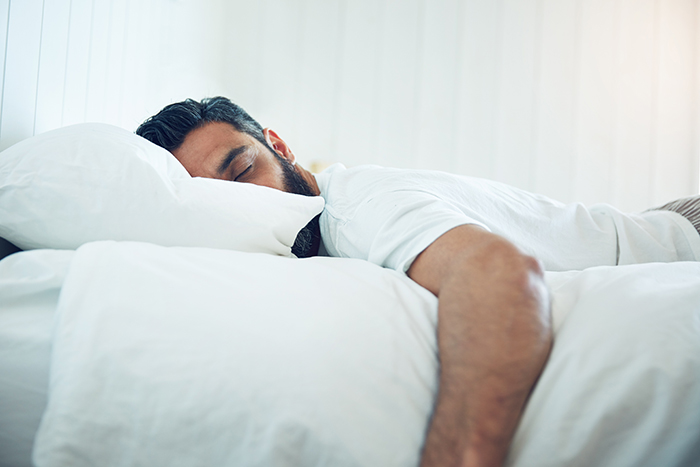Sleep Myths vs. Facts

Common myths about sleep that could be keeping you awake
To help you fall asleep, you should have a glass of wine and start counting sheep, right? WRONG. The secret to unlocking the health benefits of a good night’s sleep may lie in uncovering the truth behind the myth.
Below are five common sleep myths (and snooze-worthy truths) that may surprise you.
Myth: Alcohol can help me sleep better.
Fact: Alcohol is a depressant and therefore reduces your REM sleep, which is the deep sleep your mind and body needs to feel rested.
Myth: My weight doesn’t depend on the quality of my sleep.
Fact: When you don’t get enough sleep, you tend to feel hungrier than when you’re well-rested. Technically speaking, that’s because your level of ghrelin, or “hunger hormone,” goes up and your level of leptin, an energy hormone, lowers. In addition, interrupted sleep can lower your metabolism and increase the levels of cortisol, which may decrease your ability to burn calories.
Myth: I can be healthy and avoid sickness regardless of the quality of my sleep.
Fact: If you’re sleep-deprived, you may have trouble fighting common infections, which may lead to hypertension and cardiovascular problems. Research also indicates that poor sleep habits impair your body’s ability to use insulin, which could result in the onset of diabetes.
“Proper sleep is closely linked to many biologic processes in our body, therefore lack of (or poor) sleep is recognized as a risk for mood disorders, cardiovascular disease and decreased work productivity,” says Alberto Ramos, M.D., sleep expert at the University of Miami Health System. “Many of these health issues can improve with better sleep.”
Myth: Snoring is normal.
Fact: Many factors may contribute to snoring, including your sleeping position, allergies or a cold. Long-term, deep snoring can be a symptom of a more serious condition, such as sleep apnea or hypertension. Consult your physician to understand the best way to breathe better – and get better rest.
Myth: Counting sheep can help me fall asleep.
Fact: Let your brain relax. Engaging your brain may not help you fall asleep. Instead, try visualizing yourself in a calm, peaceful place.
To make your bedtime routine a success, read our Sleep: how to get more of it blog.
Tags: health myths, Sleep
